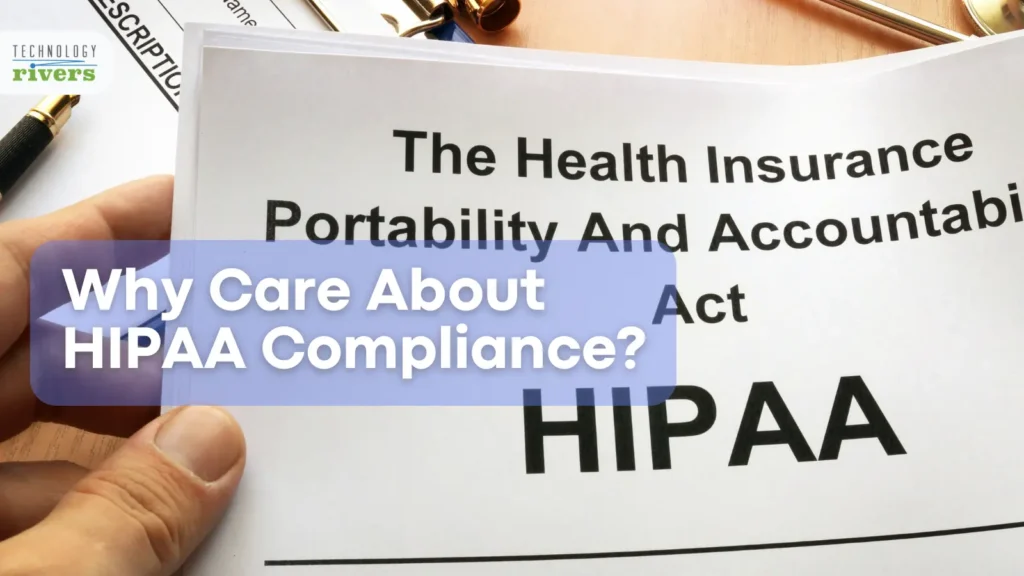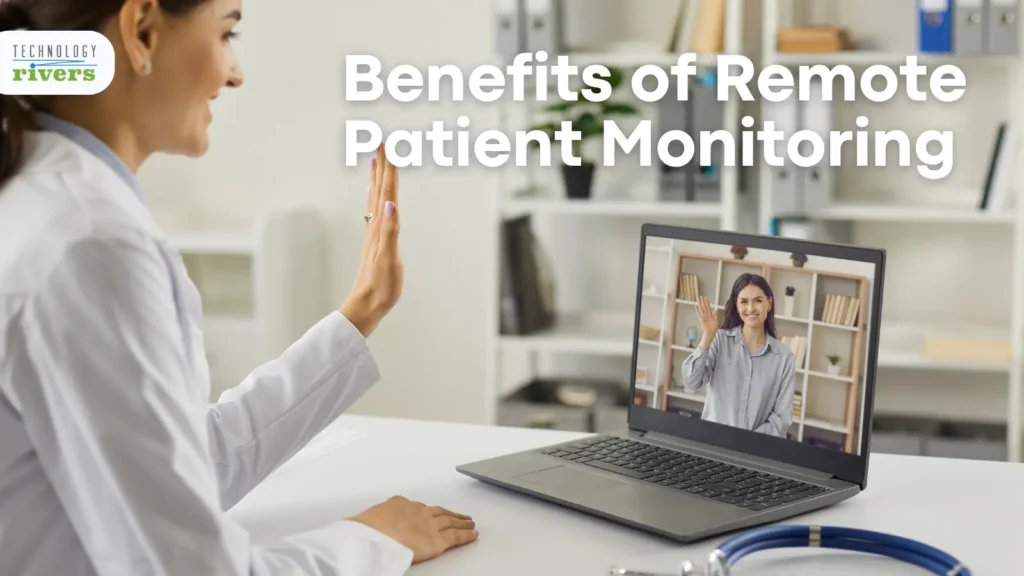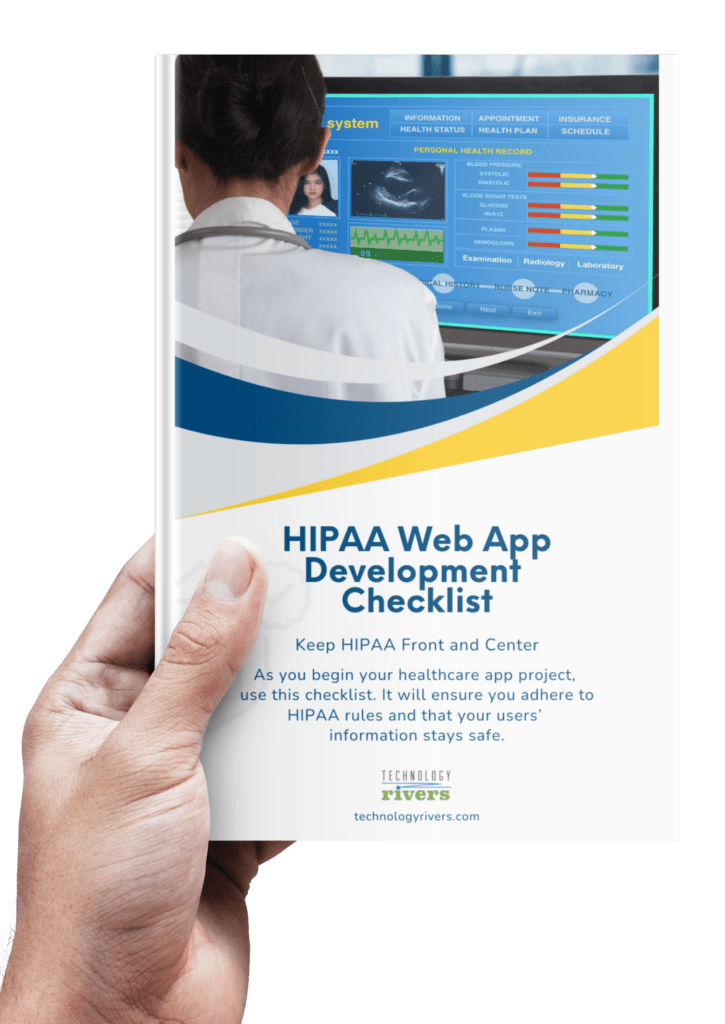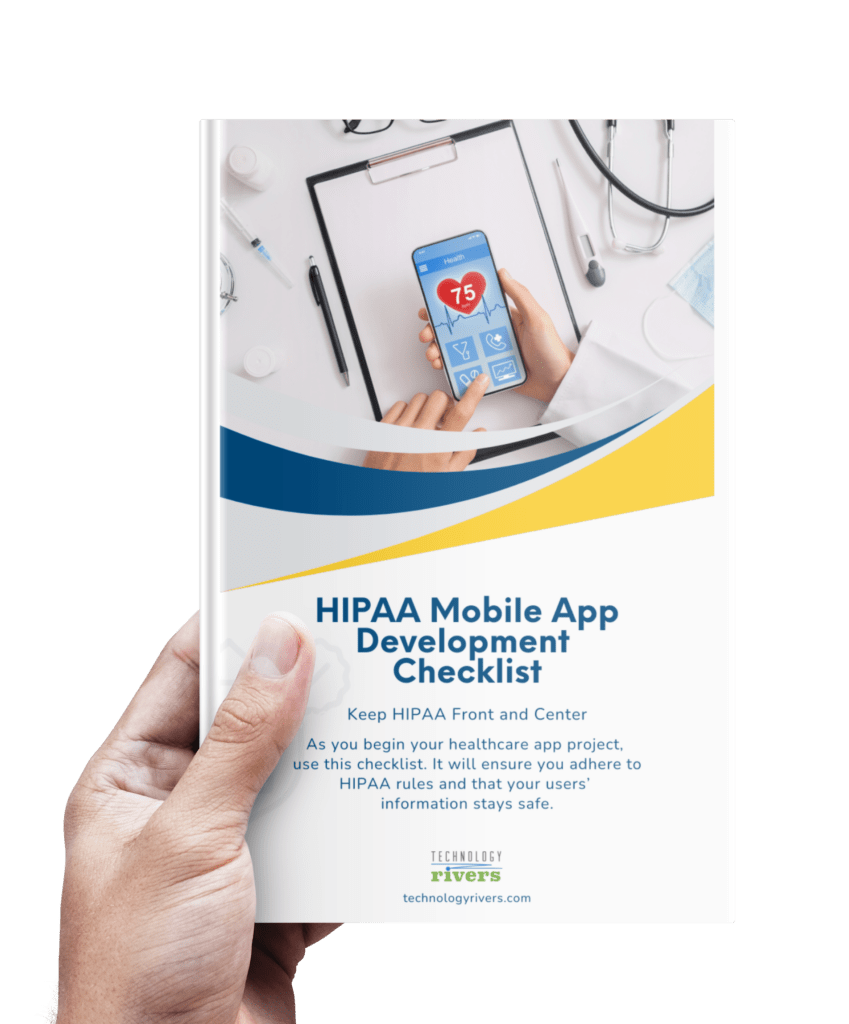Do you ever feel a twinge of panic at the thought of a HIPAA violation? You’re not alone. For health tech founders, the idea of compromising patient privacy is nothing short of a nightmare — a costly mistake that could spell disaster for everything you’ve painstakingly built. Imagine waking up to headlines, not about your innovative app but about your failings in data security, accompanied by crippling fines that can reach up to $1.5 million annually.
But here’s the silver lining: navigating HIPAA doesn’t have to be a storm you weather alone. This regulation, while daunting, offers a golden opportunity to bolster trust with your users, proving that their safety is your top priority. By integrating HIPAA compliance into your business strategy, you not only protect patient data — you also enhance your company’s credibility and secure a competitive advantage.
In this guide, you’ll learn:
- The essential backstory of HIPAA and its critical role in the digital era.
- How prioritizing HIPAA compliance can pay off in increased brand loyalty and customer retention.
- Practical strategies to fortify your systems against breaches and transform compliance from a fear into a strength.
Don’t let the fear of a HIPAA misstep paralyze you. Stick with me, and I’ll show you how to transform this challenge into one of your most potent business assets. Let’s make sure your health tech venture not only survives but thrives.
What Exactly is HIPAA?
Let’s start with the basics – HIPAA stands for the Health Insurance Portability and Accountability Act. Don’t let the formal name fool you, it’s pretty straightforward. HIPAA is a federal law that was created back in 1996 to protect the privacy and security of your personal health information.
At the end of the day, HIPAA wants to make sure your sensitive medical details stay safe and confidential, whether they’re sitting in a filing cabinet or zipping across a computer network. The law applies to all healthcare providers, insurance companies, and any business dealing with health data.
HIPAA lays out clear rules on who can access and share your protected health information, often called PHI. It also requires these entities to put robust security measures in place to protect any electronic PHI from cyberthreats or unauthorized snooping. And if a data breach does occur involving unsecured health records, HIPAA says the affected parties must notify you and the authorities, usually within 60 days.
So in essence, HIPAA enforces national standards to protect patient privacy and prevent misuse of sensitive health data in our increasingly digital healthcare landscape. It’s all about keeping your personal medical information locked down and secure.
A Quick HIPAA Rundown
HIPAA really kicked into high gear as the healthcare industry transitioned from paper records tucked away in filing cabinets to digital databases on computer systems. The driving force behind this law was ensuring your personal health details remained confidential and secure, regardless of whether they were physically stored or being electronically transferred and accessed.
As cyber threats have escalated over the years, HIPAA has had to adapt and fortify its defenses. It’s not just about privacy anymore – HIPAA now emphasizes bolstering security measures to prevent unauthorized snooping into medical records. The goal is making sure health data is always handled properly and according to strict protocols, whether it’s sitting on a server or being viewed by authorized personnel.
In simple terms, HIPAA evolved from just keeping paper files private to also safeguarding digital health data from the growing risks of hackers and data breaches in our cyber-connected world. It’s all about locking down your sensitive medical information every step of the way.

Key Aspects of HIPAA You Should Know
Let’s break down the major components of HIPAA that you need to understand:
- Privacy Rule: This is the heart and soul of HIPAA. The Privacy Rule determines who gets a front-row seat to your personal health information, called PHI. It applies to all healthcare providers, insurance companies, and related businesses that handle PHI. Essentially, it ensures only authorized parties can access and share your sensitive medical details, and they must do so responsibly.
- Security Rule: While the Privacy Rule governs who can view PHI, the Security Rule backs that up by spelling out how to properly protect electronic PHI (ePHI) from falling into the wrong hands. It requires healthcare entities to implement a comprehensive set of security safeguards – administrative policies, physical controls, and technical solutions – to lock down ePHI and prevent breaches.
- Breach Notification Rule: Despite best efforts, data breaches can still occur. If an incident exposes unsecured PHI, the Breach Notification Rule requires the affected healthcare organizations to fess up. They must alert the impacted individuals, the Department of Health and Human Services overseer, and sometimes even broadcast it publicly if the breach is large enough. This notification typically needs to go out within 60 days of initially discovering the breach.
Why Does HIPAA Matter to Your Company?
Staying HIPAA compliant isn’t just about checking boxes and mindlessly following rules. It’s actually a crucial way to earn and keep the trust of your patients. HIPAA sets the bar high when it comes to handling sensitive health data, pushing health tech companies like yours to implement top-notch security measures.
These robust safeguards don’t simply protect patient information from prying eyes – they also bolster your company’s reputation as a trustworthy and security-conscious player in the healthcare field. When clients and patients see you taking HIPAA seriously, it sends a powerful signal about your commitment to privacy and data protection.
For health tech firms, embracing HIPAA compliance isn’t just a legal formality to grudgingly check off. It’s an opportunity to demonstrate your unwavering dedication to safeguarding patient care at the highest levels. Investing in HIPAA shows you’re all-in on maintaining rigorous security and privacy standards that give patients peace of mind when they share their personal health information with you.
So in essence, HIPAA matters because it builds credibility. Following its guidelines positions your company as a safe pair of hands that patients and partners can rely on.
Why HIPAA Compliance Is a Game Changer for Health Tech Companies
HIPAA is more than just checking boxes on a list. It’s actually a powerful tool transforms a basic legal requirement into a significant business advantage. Keeping up with HIPAA isn’t just about dodging issues — it’s about building trust and adding undeniable value to your business.
Direct Benefits of Sticking to HIPAA
There are some clear-cut advantages to diligently following HIPAA that go beyond just toeing the legal line:
- Cultivating Customer Loyalty: In healthcare, trust is the foundation for any successful long-term relationship. When you rigorously uphold HIPAA standards, you demonstrate to clients and patients that you handle their private medical details with white-glove care. This visible commitment fortifies their confidence in your services and keeps them coming back.
- Deterring Data Disasters: Let’s face it, data breaches can be apocalyptic for a healthcare business. HIPAA compliance helps construct a virtually impenetrable fortress around sensitive patient information. By implementing its mandated safeguards, you dramatically reduce breach risks and unauthorized snooping that could devastate your operations.
- Avoiding Costly Consequences: Turning a blind eye to HIPAA is essentially signing up for a world of financial hurt. Violators face hefty penalties and legal quagmires that can bankrupt a company. Play by the rules, however, and you steer clear of those disastrousrepercussions that could sink your ship.
For example, let’s say you develop an AI system that monitors patients and predicts health issues. Handling that kind of personal data means rigorously complying with HIPAA protocols – not just because it’s mandatory, but because it proves your ironclad commitment to world-class data security. That credibility makes your AI solution much more attractive to potential partners who prize safety over cutting corners.
Weaving HIPAA Into Your Tech DNA
True HIPAA excellence doesn’t come from simply slapping on compliance as an afterthought. The real key is baking those privacy and security principles into the core DNA of your products and services from the ground up.
Whether you’re designing mobile apps, cloud platforms, or cutting-edge analytics tools, you need to be thinking HIPAA-first every step of the way. Building with those rigorous data protection standards as the foundation, not an added layer, is what allows you to develop rock-solid solutions that minimize compliance risks.
More than that, seamlessly integrating HIPAA makes your healthcare offerings infinitely more appealing in an increasingly crowded tech landscape. When current and potential clients see you’ve made HIPAA a central priority, it sends an unmistakable signal about your company’s quality and integrity.
Positioning your brand as ironclad on data privacy elevates you head-and-shoulders above competitors who may treat HIPAA as more of a box to check than a sacred duty. Clients and patients these days are savvy – they can smell a halfhearted compliance effort from a mile away. But when you interweave HIPAA into every line of code and process, it shows an authentic, full-throated embrace of protecting their sensitive information.

Turning HIPAA into Your Competitive Advantage
Rather than viewing HIPAA as a regulatory ball and chain, smart health tech companies are leveraging it as a powerful competitive edge. When you make compliance a core part of your DNA, you transform a basic requirement into a serious business opportunity.
- Schooling the Masses: Part of gaining an upper hand is educating your team and clients on the immense value of stringent HIPAA adherence. Provide comprehensive training to ensure every employee understands the pivotal role they play in safeguarding sensitive data. Don’t stop there – make your clients appreciate why your HIPAA dedication gives them a secure, worry-free experience they won’t find elsewhere.
- The HIPAA Halo Effect: In an industry where privacy scandals can torpedo a company’s fortunes, a steadfast HIPAA commitment builds a halo of credibility and trust around your brand. When the market sees you treating security as sacrosanct, not an inconvenience, it speaks volumes about your integrity. That brand equity pays dividends in attracting new business and keeping current clients in the fold for the long haul.
- Future-Proofing Innovation: Savvy companies also recognize that HIPAA disciplines like encryption, access controls and audit trails aren’t obstacles to new tech – they’re the pillars great innovations are built upon. Baking in those safeguards during the design phase future-proofs your products and ensures regulatory lockstep as you push boundaries.
Case Study: Transforming HIPAA Compliance into Competitive Advantage
- Challenge: A health tech startup developed an innovative cloud-based platform to manage patient health data. They needed to ensure that their new platform not only complied with HIPAA but also highlighted their commitment to privacy and security.
- Solution: The startup embedded HIPAA compliance deeply into their platform’s architecture, exceeding the basic requirements. They also launched a customer education campaign to highlight their exceptional data protection measures.
- Outcome: The platform quickly gained traction in the competitive market, attracting attention from major healthcare providers impressed by the company’s dedication to security and compliance. Their proactive approach not only mitigated risks but also positioned them as the go-to experts in secure health data management.
By viewing HIPAA compliance as a crucial part of your business strategy, you position your health tech company not just as a participant in the market, but as a forward-thinking leader paving the way for a safer and more secure healthcare industry. Embrace the challenge, lead with confidence, and watch as your commitment to HIPAA compliance turns into one of your most significant assets in the competitive health tech landscape.
How to Keep Your Health Tech Company on the Right Side of HIPAA
Let’s walk through some straightforward steps and tips to not only achieve but also maintain HIPAA compliance:
1. Regular Risk Assessments: Keeping up with regular risk assessments are key to spotting vulnerabilities in how you handle and store data. By pinpointing where your security might be weak, you can figure out how to beef it up.
2. Comprehensive Staff Training: Training isn’t just a one-and-done deal. Start with thorough HIPAA compliance training during onboarding, and don’t let up—keep everyone updated with regular refreshers. It’s vital that your team understands the importance of safeguarding patient information and knows exactly how to do it.
3. Tighten Up Access Controls: Make sure only the right eyes have access to sensitive information. Implement robust methods like multi-factor authentication and unique user IDs to keep patient data secure and ensure only authorized personnel can get their hands on it.
4. Protect Data Everywhere: It’s all about security, whether it’s electronic data or physical records. Encrypt electronic data both in transit and at rest. For physical records, keep them in a locked-down area where only a select few can access them.
5. Craft and Stick to Privacy Policies: Develop clear privacy policies that align with HIPAA and stick to them rigorously. Regularly review and tweak these policies to meet evolving challenges and new tech.
6. Keep Meticulous Records: Document everything: from data handling procedures and audits to training sessions and compliance checks. These records are gold during inspections or audits, showing your unwavering commitment to compliance.
7. Use Compliance Management Software: Invest in good compliance management software. These tools can simplify parts of the compliance process, like tracking access logs, managing consent forms, and documenting everything neatly. Pick software that’s comprehensive and fits your organization’s needs like a glove.
8. Act Fast on Breaches: Have a solid plan ready for data breaches. This includes notifying those affected, informing the necessary authorities, and taking immediate steps to stop further unauthorized access.
By nailing these steps, your health tech company won’t just achieve HIPAA compliance—you’ll maintain it, protecting patient data and ensuring your operations are legally sound. This ongoing dedication to compliance is key to building enduring trust and a strong reputation in the competitive health tech landscape.
To Wrap It Up
In this guide, we’ve unpacked the essential role HIPAA compliance plays in powering up your health tech business. At Technology Rivers, compliance isn’t just another checkbox — it’s woven into the very fabric of the custom software solutions we craft just for you. With our deep expertise and unwavering commitment to excellence, we don’t just meet compliance standards — we set new benchmarks in the health tech industry.
At Technology Rivers, we don’t just build software; we create custom solutions that meet rigorous HIPAA standards, ensuring your technology not only matches but exceeds the toughest security and privacy regulations.
Don’t let mediocre compliance tarnish your reputation. Reach out today to see how our tailored HIPAA-compliant software solutions can fortify your company’s operations and sharpen your competitive edge.
We’re here to brainstorm, refine, and elevate your health tech solutions to not only meet but soar beyond HIPAA standards. Share your thoughts, or connect with us at Technology Rivers, and let’s take your health tech solutions to the next level.














